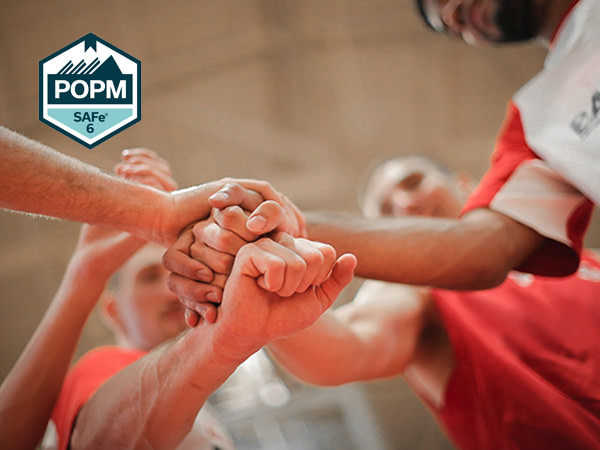Welcome
The Agility Strategist
The world of Agility is changing, and more organizations have now experienced some sort of agility in their evolution. To better support our clients, we are growing up with the market needs. We now introduce the role of Agility Strategist to go beyond Agile Coaching and Scrum Mastering. With true experience, the Agility Strategist develops an Agile culture using values, tools, practices and frameworks to emphasis on engagement, transparency and empowerment with accountable results.
AgileKlix with Martin Lapointe specializes in cultural Agile evolution, where the company's people, teams, practices, and tools deploy to improve the ability to execute and deliver high-quality products.
The Agile Strategist’s goal is to define a path for the Agile evolution in the organization focusing on results and outcomes
In today's competitive marketplace, it is possible to create extraordinary products and services on a regular cadence by giving everyone the freedom and opportunity to deploy their talent as individuals and teams.- Martin Lapointe
Recognized Competencies
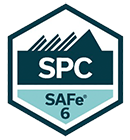
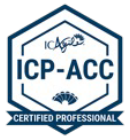
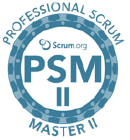
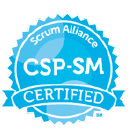
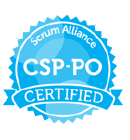
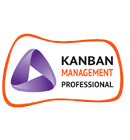

 |
The Engagement
Responsibilities:
The Agile Partner acts as a facilitator and advisor within the Agile team, helping to create an environment conducive to agility and ensure that Agile practices and values are properly implemented.
Responsibilities:
Responsibilities:
0+
Training
0+
Participants
0+
Agile Practices
0%
Happiness
0%
Engagement
1%
Agile Maturity
SAFe® classes provided by AgileKlix


SAFe for Teams
Develop the skills to become a high-performing team member by becoming a SAFe®(SP)
Details
AgileKlix Strategic Pilars
The Agile Manifesto consists of four core values and twelve principles that guide Agile development.
Here are the four core values of the Agile Manifesto:
These core values are supported by twelve principles that provide more details on how to implement the Agile approach. By following these values and principles, Agile development teams seek to deliver software in a faster, flexible, and collaborative way, constantly adapting to changing customer needs and project challenges.
Principles of Scrum :
Avantages de Scrum :
Scrum provides a framework that enables teams to deliver high-quality products iteratively, and effectively meeting evolving customer needs.
Fundamental principles of Kanban:
Kanban, with its focus on visualization and workflow management, is a powerful method for development, especially in environments where flexibility and adaptability are key.
Here are some key aspects of Product Management:
Product management is a multifaceted discipline that combines deep understanding of the market and users with strategic planning skills and effective management of development teams. It aims to create and maintain software products that are aligned with the company's vision and meet the needs of users.
Testimonials (Scroll right)
Vous êtes à la recherche d'un coach expérimenté?
Pour le déploiement de l'agilité à l'échelle dans votre organisation? Je vous recommande vivement Martin Lapointe. J'ai eu le plaisir de travailler avec Martin depuis octobre 2021. Il m'a beaucoup aidé ainsi que nos équipes au Intact Lab.
Houda Bagané MBA Directrice – Agilité, Développement logiciel chez Intact Lab
Un coach exceptionnel!
Je seconde Houda! J’ai eu le plaisir de travailler avec Martin et il est un coach exceptionnel. Il est à l’écoute et sait adapter sa stratégie selon le contexte de l’organisation. De plus il est un communicateur et un enseignant hors pair. Une grande partie du succès de l’initiative SAFE chez Intact lui revient. Merci pour tout Martin, j’espère sincèrement qu’on aura la chance de se recroiser dans le futur!
Stéphane Maltais Directeur, Assurance qualité et performance chez Intact Lab
Sincerely Bravo!
It is with great pleasure that I have worked with Martin. It needs a lot of soft skills to be able to manage an Agile organizational change of this magnitude. What Martin did at Intact Lab is all about being able to convince the upper management and the key people in the organization. It is not often that you come across a SAFe professional that is not only theory driven but also has a strong knowledge of the « terrain ». Martin is among the best Agilists I’ve worked with.
Guillaume Poitras, SAFe RTE chez Intact Lab
Au cœur des succès que nous connaissons!
Grâce à son expertise et son approche, nous avons réussi à mettre en place des pratiques agiles afin de supporter le secteur Marketing dans sa transformation à la Banque Nationale. Il est un excellent communicateur, possède une solide expérience dans la gestion de projets et sait s’en servir pour rejoindre les personnes impliquées, peu importe leur rôle. Martin nous permit de mettre en place un programme dans un contexte complexe.
Martin Bouchard Directeur Ce3 Expérience Client Marketing BNC
Une touche d'humour, ce qui aide à la transition!
J'ai eu la chance d'avoir Martin comme Coach Agile pour mes équipes. Nous avons réussi à implanter notre première équipe en mode Scrum et d'obtenir un très bon résultat après seulement 6 semaines. Le savoir-faire et être de Martin sont pour moi la clé du succès pour comprendre le bien-fondé de la méthode et ce qu'ils peuvent en tirer. Aussi son expertise dans les processus de développement permet à Martin de bien comprendre et de trouver des solutions aux différents arguments de l'équipe.
Philippe Audet Directeur Principal développement chez Pages Jaunes – Canada
Libérer la force et la joie du travail d’équipe!
Nous avons eu recours à la vaste expérience de Martin pour nous guider. Ce dernier nous a énormément aidés et n’a rien fait de moins que de littéralement « rebooter » notre pratique. Grâce à ses conseils, son implication et son engagement, notre pratique SCRUM est passée à un autre niveau. Avec l’aide de Martin, nous avons vraiment réussi à libérer la force et la joie du travail d’équipe dans notre entreprise tout en atteignant une vélocité insoupçonnée.
Jean-Pierre LortieVice-Président, RetD, IXIASOFT
Brought an extremely deep passion!
AI worked with Martin on several projects over the last couple of years. He brought an extremely deep passion and a remarkable ability to teach Agile thinking to teams of different levels. Martin brought measurable and immediate improvements to every Sprint he was associated with. I watched him adapt his approach several times for every team he worked with. He always spoke with a deep level of experience and energy that translated to enthusiastic teams and true team ownership.
Chris Stamatelos Scrum Master at CN
I became way more efficient with my team as a Product Owner
Martin knowledge of the agile process is incredible. With his training, I became way more efficient and was able to better plan and communicate with my team as a Product Owner. Our velocity greatly improved as well as our cooperation. His action driven style helped us get it right faster than expected and diffused an ownership feeling among the team.
Sammy NajarHead of Product chez Stradigi AI
Mettre en œuvre des pratiques Agiles dans une culture très "cycle en V"
Lors de son passage chez BNP Paribas à Paris, Martin a beaucoup apporté aux équipes avec lesquelles il a travaillé. Grâce à son ouverture d'esprit et sa pédagogie, il a réussi à faire mettre en œuvre des pratiques Agiles à des équipes projet pourtant dans une culture très "cycle en V". En plus de ses connaissances sur l’Agilité, Martin a apporté toute sa bonne humeur au sein de notre équipe. Ce fut un réel de travailler avec lui durant cette mission.
Adrien Piquot Coach Agile Coach chez BNP Paribas


